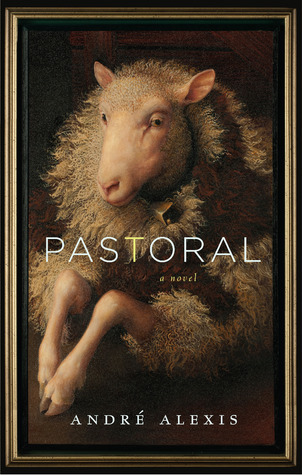What do you think?
Rate this book


162 pages, Paperback
First published February 28, 2014
pas•to•ral
adjective
1. (especially of land or a farm) used for or related to the keeping or grazing of sheep or cattle.
2. (in the Christian Church) concerning or appropriate to the giving of spiritual guidance.
noun
1. a work of literature portraying an idealized version of country life.
1. Awakening of cheerful feelings upon arrival in the country.
2. Scene at the brook.
3. Happy gathering of country folk.
4. Thunderstorm; storm.
5. Shepherd's song; cheerful and thankful feelings after the storm.
Pastoral is musical in structure. In every chapter, there are 5 elements that absolutely must be mentioned: bread, candle, sheep, prayer book, water. But the order in which they appear varies in this way:
chapter one: a, b, c, d, e
chapter two: b, c, d, e, a
chapter three: c, d, e, a, b
chapter four: d, e, a, b, c
chapter five: e, a, b, c, d
where a = bread, b = candles, c = sheep, d = prayer book, e = water
The earth, which has only two words, intoned the first of them ('life') noisily, with birdsong, the gurgle and slap of rushing water, the suck and squelch of the ground itself. Not that its other word ('death') was banished. As they walked in a field, Father Pennant spotted a small clearing over which bleached animal bones (ribs, skulls, backbones and limbs) were strewn. Among and through the bones, young grass grew. It was like an open ossuary.
It occurred to him that Barrow itself was neither good nor evil but was, instead, animated by whatever it was that animated the land, the thing that animated each and every one of them and, so, revealed itself in its hiddenness. In fact, one felt, or he felt as he walked -- blasphemous though the thought was -- that God was only an aspect of the hidden, an idea brought into being by man in order to point to a deeper thing that had no name and reigned beyond silence.
After Tomasine's burial, the ground in the graveyard was more dense than it had been, with another body -- like cold, curdled earth -- to digest. The currents of air that visited Barrow had one less person to circle or caress. And the wind as it blew through town made a sound ever so slightly altered. The ants had one less hazard, the birds one less predator, the worms one more meal.
As he always did when he was bewildered or thought about God's grandeur and mystery, he kneeled down to pray. He kneeled in the weeds, among the insects and rodents, and prayed for enlightenment. What were his duties, now that he had been given a vision?.... There was great comfort in prayer. It was not so much that he felt the presence of God when he prayed, though he did at times feel His presence and that always brought him peace. It was the kneeling - head bowed, fingers interwoven and held on his chest - immediately brought to his mind all the times he had surrendered to the mystery that was the world and to the mystery that was God. Comfort came from the continuity of submission. Kneeling, praying, he was himself at his most open and at his most genuinely human: ignorant, hopeful, humble in the face of the unknown."
Of course, it’s wonderful to contemplate Nature, but without the miraculous the earth is only a coffin.
Comfort came from the continuity of submission. Kneeling, praying, he was himself at his most open and at his most genuinely human: ignorant, hopeful, humble in the face of the unknown.